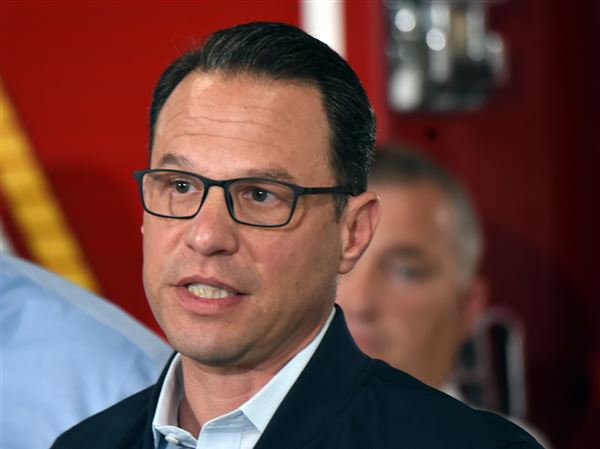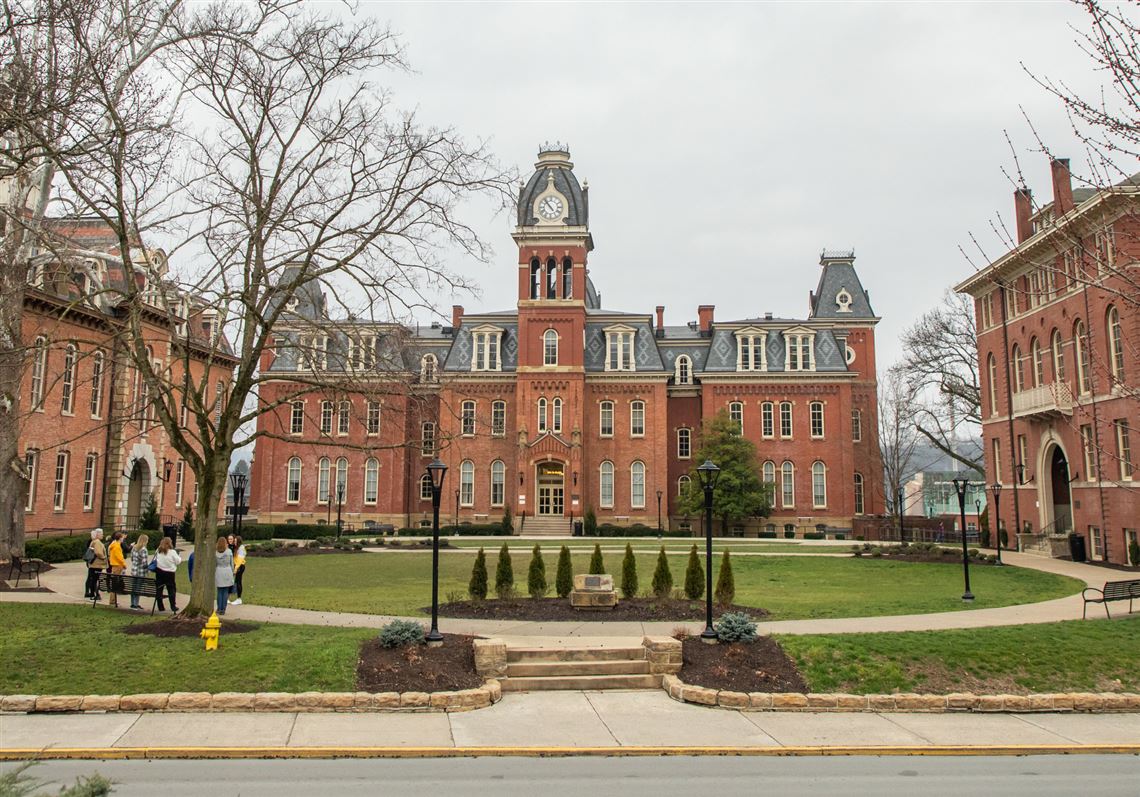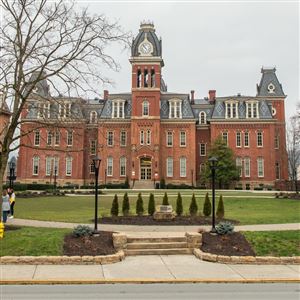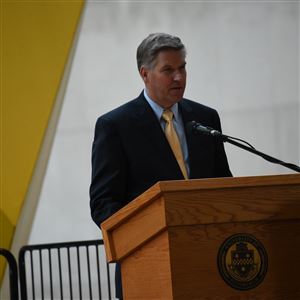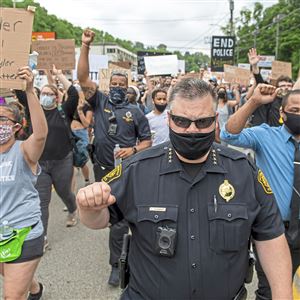West Virginia University’s police chief is apologizing for appearing in a virtual campus conversation on ways to foster a safe, inclusive culture, while on the wall behind him was a flag that concerned some on the call.
In a public statement issued by WVU, Chief W.P. Chedester said he has taken down the American flag with a blue stripe associated with the Blue Lives Matter counter-movement.
Chief Chedester said the flag, given to him as a gift, had an entirely different meaning for him than for some on the call, at a time when George Floyd’s killing by police in Minneapolis has stirred a national dialogue about racism and police misconduct and sparked international protest.
“For me personally, it has always represented a way to honor the commitment I made as a first responder to protect our community,” he wrote. “I understand now that it represents something else to many others; something that I now know was traumatic to some of our community tuning in for our conversation.
“I sincerely did not have any intent to suggest that police lives matter more than black lives nor was I intentionally trying to cause any harm or offense,” Chief Chedester said.
The Zoom call with Meshea Poore, WVU’s vice president of diversity, equity and inclusion on Wednesday was intended to discuss how the WVU community could collectively foster a safe, diverse and inclusive culture. There was an open invitation to faculty, staff, students and the community to participate, university spokesman John Bolt said.
The chief’s subsequent statement was a response to an audience member’s question about the flag during the call, and concerns raised about it by individuals afterward, Mr. Bolt explained.
“Sometimes, there are events that occur that open our eyes to things we have not seen before,” the chief wrote. “The horrible killing of George Floyd has made it clear that we have much work to do in our country and in our own communities.
“Today I saw a symbol through others’ eyes. As a leader on our campus, I will be more conscientious, intentional and thoughtful,” he said. “As a community, we also need to lead in that direction.”
During the hour-long call that stressed police and community interaction, Ms. Poore described it as the first of what she hoped would be multiple courageous discussions about campus relations and broader human rights. She referred to Floyd’s death and the aftermath, and its emotional impact.
“What the world is seeing is what I have seen for a period of time, and one thing I can say to you is that racism is a chain of our collective soul that we all have responsibility to break together,” she said.
On Thursday, Ms. Poore told the Pittsburgh Post-Gazette that the flag’s symbolism caused trauma to those on the call, but the chief acknowledged it and took steps in response.
“I think this incident did turn out to be a teachable moment for us all,” she said. “For some the lesson was how we can listen, learn and respond with honest apology and willingness to change. For others the lesson was how we can speak up, share our perspective, and hold each other accountable.”
There were 667 individuals logged into the call, according to WVU. Forty-two minutes into it, the moderator fielding remote questions noted “interest in the wall decor in your space” and asked the chief about it.
He said it was a gift from his wife, and that it was a common flag for first responders, blue in this case for police. The number “701” on it represented his unit, he said.
“It also has a verse about peacemaker on it,” he said.
Mr. Bolt said the flag generated considerable traffic on social media afterward.
WVU enrolls about 30,000 students. Its police force of 56 state-certified and sworn officers is one of West Virginia’s largest police organizations, Mr. Bolt said.
Bill Schackner: bschackner@post-gazette.com, 412-263-1977 and on Twitter: @Bschackner
First Published: June 11, 2020, 5:31 p.m.
Updated: June 11, 2020, 8:43 p.m.


